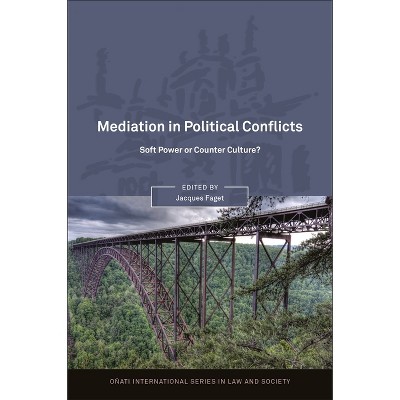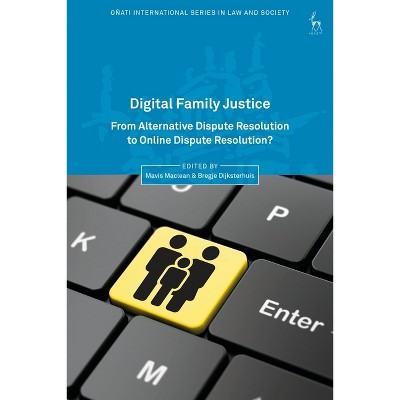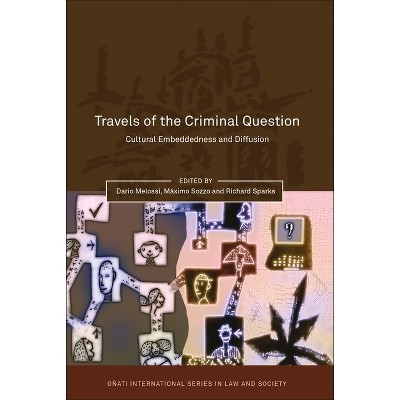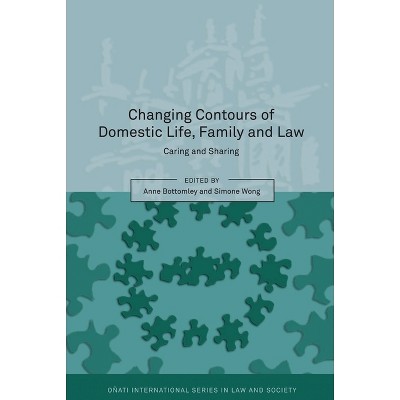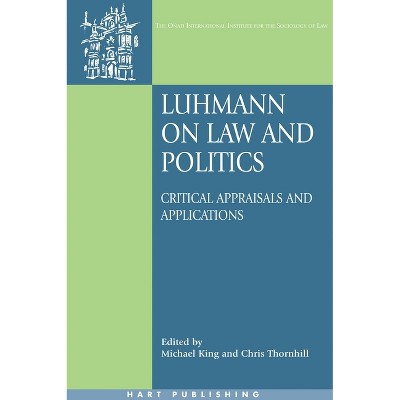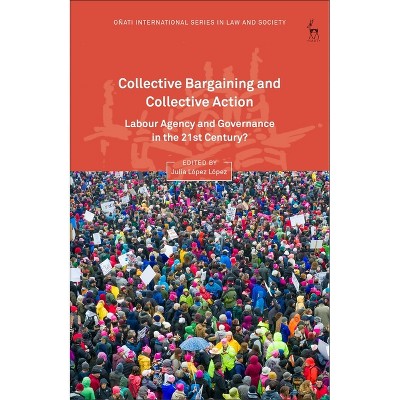Sponsored

Fighting for Political Freedom - (Oñati International Law and Society) by Terence C Halliday & Lucien Karpik & Malcolm M Feeley (Hardcover)
In Stock
Sponsored
About this item
Highlights
- Across the world, political liberalism is being fought for, consolidated, and defended.
- About the Author: Terence C Halliday is a Senior Research Fellow at the American Bar Foundation in Chicago.
- 520 Pages
- Political Science, Political Freedom
- Series Name: Oñati International Law and Society
Description
About the Book
This book tests for the contemporary world the proposition that lawyers are active agents in the construction of liberal political regimes.Book Synopsis
Across the world, political liberalism is being fought for, consolidated, and defended. Nations that have never enjoyed a liberal political society are constrained or inspired by international institutions to create one. Nations that have advanced towards and then retreated from political liberalism are pressed to regain lost ground. Nations that have recently shifted from authoritarian to liberal political systems are encouraged to lock in the transition through institutions and constitutions. Mature democracies are being encouraged to recover diminished freedoms in the face of terrorism and domestic conflict. This book tests, for the contemporary world, the proposition that lawyers are active agents in the construction of liberal political regimes. It examines the efficacy of a framework that postulates that legal professions not only orient themselves to a market for their services, but they frequently can be seen in the forefront of actors seeking to institutionalize political liberalism. On the basis of some sixteen case studies from across the world, the authors present a theoretical link between lawyers and political liberalism having wide-ranging application over radically diverse situations in Asia, the Middle East, North America, South America, and Europe. They argue that it is not the politics of lawyers alone, but the politics of a 'legal complex' of legally-trained occupations, centered on lawyers and judges, that drives advances or retreats from political liberalism. Political liberalism itself is in play everywhere, in countries with established democracies and those without liberal politics. It is now clear that the legal arena is a central field of struggle over the shape of political power. The case studies presented here provide powerful evidence that the nexus of bar and bench in transitions towards or away from political liberalism is a force which has universal application. (Series: Onati International Series in Law and Society)Review Quotes
"[The] broad coverage is truly impressive and refreshing in itself. When are all these countries, traditions, cultures ever brought together not just in one volume, but in a comparative project? There are more reasons, why this book is remarkable. It reminds the reader of the political relevance of sociology of law and the sociology of profession by covering issues such as Guantánamo and the role of the courts, the war against terrorism and the abolition of rights, authoritarian regimes and the force of law, the legal market and the professions' societal responsibility." --Thomas Scheffer and Hyo-Eun Shin, The Law & Politics Book Review Vol. 18 No.9
"The hallmark of this remarkable volume is the conceptualization of the legal complex and its relationship to political lawyering." --Laura J. Hatcher, Vol 43, No 1About the Author
Terence C Halliday is a Senior Research Fellow at the American Bar Foundation in Chicago.
Lucien Karpik is at the Ecole des Mines, Centre Raymond Aron (EHESS), Paris. Malcolm M. Feeley is Claire Sanders Clements Dean's Chair Professor of Law at the University of California, Berkeley.





